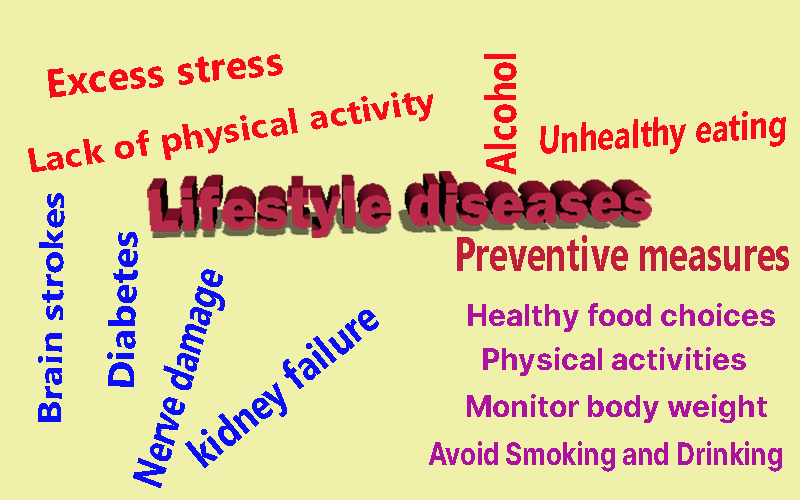An overview of most prevalent lifestyle diseases : Prevention and Care
As the law of nature states, a healthy lifestyle assures a better life. The demanding work life and personal commitments has made humans prone to a number of diseases. The on-going pandemic has also brought upon a number of challenges, like the lack of physical activity and excess stress with the work from home culture. As we celebrate World Health day, it is imperative we pay attention to the most common lifestyle diseases and how they have become more prevalent in recent times.
India is the world’s democracy and is a fast growing economy and rates at number 10 out of the 11 countries in Asia Pacifiz Region in the Health Index. According to the Centre for Science and Environment, over 61 percent of the deaths in India are attributed to lifestyle or non-communicable diseases. The reports also say that every 12th Indian is a diabetic patient as India ranks second in the list of countries with the highest diabetes records.
Unhealthy eating habits like junk or processed foods, artificial sweeteners and fatty food items is one major reason for the various health complications in the present day world. While lifestyle choices like consumption of alcohol, irregular sleeping cycles and tobacco smoking also contributes largely to the rise in the number of medical cases.
An unexpected rise in body weight increases the risk of diabetes. Uncontrolled diabetes and high blood pressure can result in serious health complications like brain strokes, nerve damage, and kidney failure. While thyroid may not show noticeable symptoms in the initial stages but if progressed to an advanced stage, can lead to a number of health problems like obesity, heart diseases, infertility complications, and sleep apnea.


Below listed are a few preventive measures one can adopt to live a hassle-free life and cut down the risks associated with several health ailments:
- Make healthy food choices: A wholesome diet can help the body receive the right amount of proteins, nutrients, and vitamins. It is essential to chalk out the right diet plan and follow the same on a regular basis. The platter should consist of green leafy vegetables and food items rich in vitamin A, calcium, and fiber. One must also consume an adequate amount of water on an everyday basis while water-based fresh fruits like watermelon, muskmelon, grapes, etc are also another best alternative. Portion control is important to understand for every individual, excessive food consumption can lead to serious health hazards. It is advisable to reduce the portion size and consume food every two hours.
- Include more physical activities in your daily routine: Striking the balance between the right diet and physical activity is important to keep the body fit and healthy. To keep the immune system active and functioning properly, every individual must participate in some physical activities for nearly 30 minutes per day. Walking is considered to be the best form of exercise for all age groups that can help to burn the extra calories and improve the strength and endurance of our immune system. Performing household chores and some light yoga can help one calm down from the regular stress and anxiety.
- Monitor the body weight: Bodyweight needs to be managed and monitored regularly. Increased body weight can lead to obesity, diabetes, and thyroid in extreme conditions.
- Avoid Smoking and Drinking: Thiocyanate and nicotine in cigarettes can increase the excretion of iodine that develops high risks of adapting thyroid. It automatically doubles the risk of adopting several health complications by damaging the blood vessels. Reduction in smoking and drinking can help one live long and develop higher energy levels.
- Try to reduce screen time – The usage of mobile phones should be reduced when it is not required. The radiation coming out of mobile phones affects our health in many ways and especially patients suffering from thyroid. Therefore it is important to keep away the mobile phones or any electronic devices and reduce screen-timing before sleeping. It helps one to get a goodnight’s sleep and feel fresh the next morning.


Dr. L Sanjay, MD , CCEBDM
Internal Medicine and Diabetologist
Apollo Spectra Hospital,
Kondapur Hyderabad











